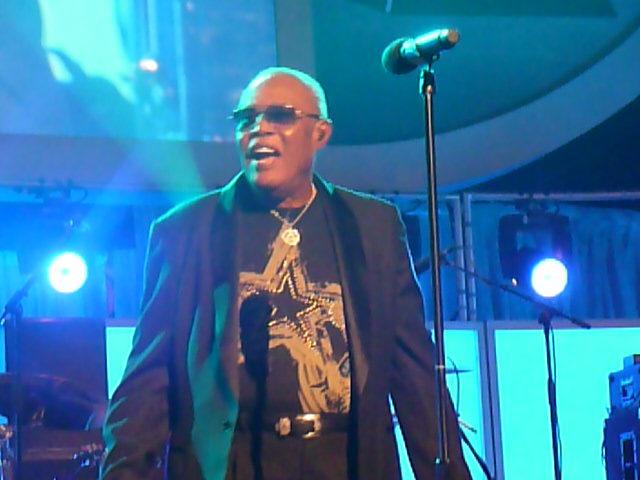What a year 1967 was for pop music. The number 1 songs on Cashbox included Aretha Franklin’s “Respect,” The Box Tops’ “The Letter,” “Penny Lane” and “Hello Goodbye” from the Beatles, the Rolling Stones'”Ruby Tuesday,” “Happy Together” by the Turtles, and three hits from the Monkees.
But for one week, on November 11th, Sam & Dave took the top spot with “Soul Man.” Written by Isaac HAyes and David Porter, “Soul Man” was the first time anyone ever used the expression– soul man. They invented it. Once it was a hit, everyone wanted to be a ‘soul man.’ Sam & Dave won the Grammy for “Soul Man” as Best R&B Vocal, Duo.
Still popular? Oh yes. In the last two days, “Soul Man” has been played 22 times on Sirius XM across all their channels. It’s a staple of oldies and R&B radio. Fifty years later and you can’t miss it on a 24 hour cycle. (PS Sam & Dave do not get paid for the radio play as there is no performance rights royalty.)
The late great Isaac Hayes once told NPR: “I got the idea from watching on TV the riots in Detroit. It was said that if you put ‘Soul’ on the door of your business establishment, they wouldn’t burn it. Then the word ‘Soul,’ it was a galvanizing kind of thing for African Americans, and it had an effect of unity, it was said with a lot of pride. So I thought, ‘Why not write a tune called ‘Soul Man.’ And all you had to do was write about your personal experiences, because all African Americans in this country at the time had similar experiences. But we realized that in addition to being an African American experience, it was a human experience, and therefore it crossed over and became very commercial.”
The great Sam Moore tells me the song is a little of an albatross for him, but it’s also been a great legacy. There’s nowhere he can go without people asking for it. He’s sung it for every living president. He’s sung it in movies, too, even in the weird C. Thomas Howell movie “Soul Man.” (Moore had to sue Miramax when they made a whole movie called “Soul Men.” That’s a whole other story.)
Sam Moore tells me of the original recording: “I remember walking into the studio and they were tinkling with something…there was a magazine called Sepia [kind of like a black version of Life]. David was looking through it. They put it down and starting working on it…This song has become an anthem, a legend, everything I never thought would happen to it…Can you believe it’s 50 years? I loved all of Isaac and David’s songs.”
Sam continues: “For Soul Man, everybody started using the term. I didn’t pay attention at the time. And it was the first utterance of the term. I was in England and we were performing, jumping all over the stage. I looked towards the curtain and saw Phil Walden in the wings. He put up a finger. I didn’t know if he meant ‘stretch the set’ or ‘cut.’ I ran over to the side and said What’s going on? He said Soul Man was number 1. I ran back on stage and started yelling “Soul man! Soul man!” The place went up in flames. Dave [Prater] came off and said We killed ’em!”
A strange note: on the Billboard charts, which were more susceptible to, uh, er, influence, “Soul Man” didn’t get to number 1. Lulu’s “To Sir with Love” held it off to number 2. But Cashbox was the measurement then, and that’s all that mattered.
Many years later, Sam heard Dan Aykroyd and John Belushi sang the song on “Saturday Night Live” as the Blues Brothers. “We played a place in New York called My Father’s Place on Long Island that summer. We did Soul Man and the kids are dancing, and jumping. A guy comes up after the show and says Sam, Dave, that song, you all shoulda recorded that because you sound better than the Blues Brothers! He thought it was their song. Dave said, We don’t have to record it, man. We did it! We’re the originals! The guy said, Oh come on.”
But the Blues Brothers did help bring “Soul Man” back, and Sam has a 40 year friendship with Aykroyd to show for it.
What would Sam say to Isaac now after 50 years? “Of all the people in the world, of anyone who taught me how to be a better singer, or give me the tools to be a better singer, it was Isaac. Even above [producer] Tom Dowd. He was number 1 in my book.”

